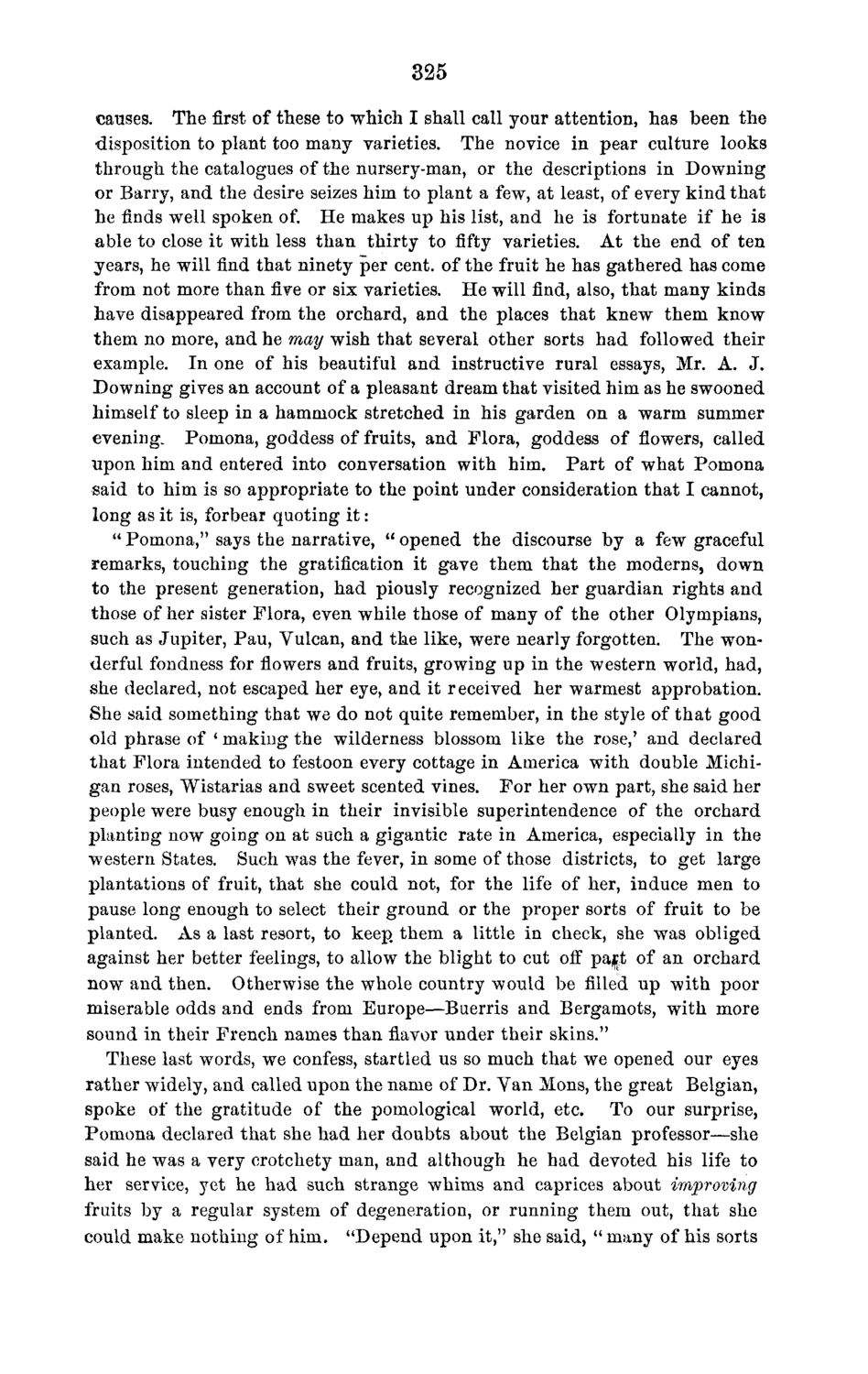| |
| |
Caption: Board of Trustees Minutes - 1870
This is a reduced-resolution page image for fast online browsing.

EXTRACTED TEXT FROM PAGE:
325 causes. The first of these to which I shall call your attention, has been the disposition to plant too many varieties. The novice in pear culture looks through the catalogues of the nursery-man, or the descriptions in Downing or Barry, and the desire seizes him to plant a few, at least, of every kind that he finds well spoken of. He makes up his list, and he is fortunate if he is able to close it with less than thirty to fifty varieties. At the end of ten years, he will find that ninety per cent, of the fruit he has gathered has come from not more than five or six varieties. He will find, also, that many kinds have disappeared from the orchard, and the places that knew them know them no more, and he may wish that several other sorts had followed their example. In one of his beautiful and instructive rural essays, Mr. A. J. Downing gives an account of a pleasant dream that visited him as he swooned himself to sleep in a hammock stretched in his garden on a warm summer evening. Pomona, goddess of fruits, and Flora, goddess of flowers, called upon him and entered into conversation with him. Part of what Pomona said to him is so appropriate to the point under consideration that I cannot, long as it is, forbear quoting it: " Pomona," says the narrative, " opened the discourse by a few graceful remarks, touching the gratification it gave them that the moderns, down to the present generation, had piously recognized her guardian rights and those of her sister Flora, even while those of many of the other Olympians, such as Jupiter, Pau, Vulcan, and the like, were nearly forgotten. The wonderful fondness for flowers and fruits, growing up in the western world, had, she declared, not escaped her eye, and it received her warmest approbation. She said something that we do not quite remember, in the style of that good old phrase of ' making the wilderness blossom like the rose/ and declared that Flora intended to festoon every cottage in America with double Michigan roses, Wistarias and sweet scented vines. For her own part, she said her people were busy enough in their invisible superintendence of the orchard planting now going on at such a gigantic rate in America, especially in the western States. Such was the fever, in some of those districts, to get large plantations of fruit, that she could not, for the life of her, induce men to pause long enough to select their ground or the proper sorts of fruit to be planted. As a last resort, to keep them a little in check, she was obliged against her better feelings, to allow the blight to cut off pa|t of an orchard now and then. Otherwise the whole country would be filled up with poor miserable odds and ends from Europe—Buerris and Bergamots, with more sound in their French names than flavor under their skins." These last words, we confess, startled us so much that we opened our eyes rather widely, and called upon the name of Dr. Van Mons, the great Belgian, spoke of the gratitude of the pomological world, etc. To our surprise, Pomona declared that she had her doubts about the Belgian professor—she said he was a very crotchety man, and although he had devoted his life to her service, yet he had such strange whims and caprices about improving fruits by a regular system of degeneration, or running them out, that she could make nothing of him. "Depend upon it," she said, " many of his sorts
| |